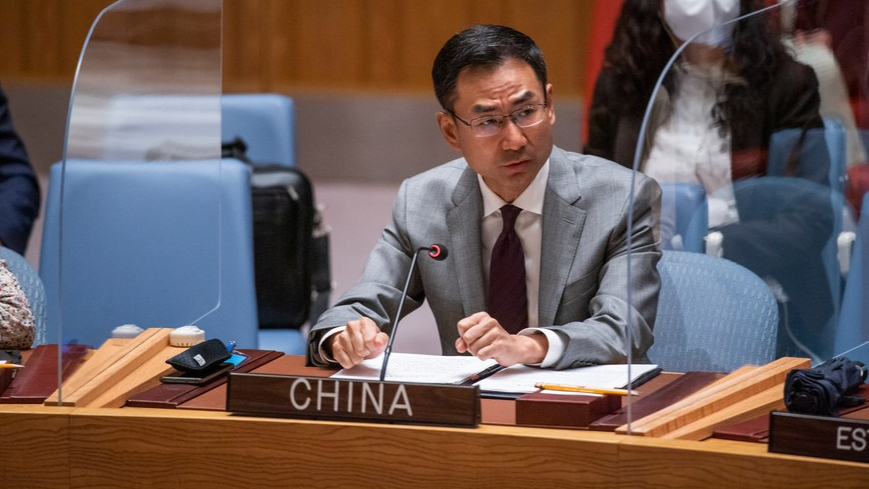
UNITED NATIONS - Geng Shuang, China's deputy permanent representative to the United Nations (UN), on Friday said that a transition from the current armistice to a peace mechanism is key to the settlement of the Korean Peninsula issue.
"In order to fundamentally resolve the question of the Peninsula, it is necessary to realize the transition from the armistice to a peace mechanism, which China has been calling for and actively working for for many years," Geng told the Security Council briefing on the Korean Peninsula nuclear issue.
Geng expressed deep concern over the ongoing tension and confrontation on the Korean Peninsula, highlighting the broader regional and global implications of instability
Geng expressed deep concern over the ongoing tension and confrontation on the Korean Peninsula, highlighting the broader regional and global implications of instability.
"If there are war and chaos on the Peninsula, the entire Northeast Asia will be deeply affected," he noted, adding that "a peaceful and stable Korean Peninsula serves the common interests of the countries in the region and the common expectations of the international community."
ALSO READ: China, ROK hold '2+2' diplomatic, security talks in Seoul
"Certain countries use the Peninsula issue to advance their geopolitical strategies, increase their military presence, and strengthen their extended deterrence. Such actions will only lead to camp confrontation, exacerbate tensions, and make it more difficult to achieve the goal of long-term peace and security in the region," he said.
Geng called for rational and pragmatic joint efforts to find a solution, citing the United States as an example, saying it "should end the myth of deterrence and pressure, and demonstrate sincerity in unconditional dialogue through concrete actions."
Highlighting the historical context, Geng referred to the Cold War legacy impacting the Peninsula, underscoring the absence of a peace mechanism as the crux of ongoing issues. "The Peninsula issue has dragged on for decades," he said. "The crux of the problem is the lack of mutual trust between the United States and the Democratic People's Republic of Korea and the absence of a peace mechanism."
Geng defended China's position and efforts toward peace on the Peninsula, responding to criticism from the US representative to the UN: "Just now, the US representative, in his statement, again attacked and made accusations against China's position and role on the Peninsula issue. China strongly rejects this and absolutely does not accept it."
READ MORE: China opposes moves that escalate tensions on Korean Peninsula
Geng concluded by reiterating China's commitment to peace in the region. "As a close neighbor of the Peninsula and a responsible major country, China will play a constructive role in its own way for the realization of long-term peace and stability on the Peninsula and in Northeast Asia," the envoy said. He called for cooperation from all parties, especially the United States, and urged them to reconsider their approach to international relations and conflict resolution.


